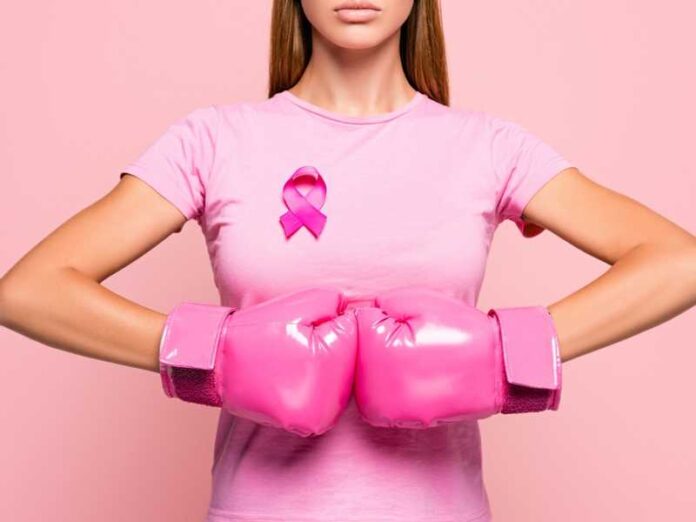Breast cancer is more common in women over the age of 50 who have gone through menopause, and is often more aggressive and difficult to treat when it develops in younger patients.
But a recent study found that exercise reduces the risk of breast cancer in younger women by up to 10%, and researchers found that the most active women before menopause were one-tenth less likely to develop breast cancer than the least active women, according to The Telegraph.
About five thousand women under the age of 45 are diagnosed with breast cancer every year. Through the study, 10,231 women were diagnosed with postmenopausal breast cancer.
Experts from the Institute of Cancer Research in London analyzed 547,000 women over an average of nearly 12 years, tracking their levels of physical activity and whether they developed breast cancer.
The researchers concluded that regular exercise, which includes walking or cycling among other sports, at least three times a week outside of work, reduces the risk of breast cancer.
They reported that the most active 10% were one tenth less likely to develop breast cancer compared to the least active 10%.
However, the researchers pointed out that there is no noticeable benefit from increasing the intensity or duration of exercise, and Dr. said. Simon Vincent, director of research, support and impact at Breast Cancer Now, which funded the study, said: “Breast cancers in younger women tend to be more aggressive and are diagnosed at a later stage, so we urgently need to find new ways to treat them, most importantly preventing people from getting them.
She added, “Although it is not possible to predict who will develop breast cancer, women can take steps to reduce their risk. This research highlights how important it is to support women to start making small, healthy lifestyle changes, which can have a significant impact.” It is positive for their health and helps reduce the risk of breast cancer, the most important of which is regular exercise, as it can reduce the risk of cancer in women, especially after menopause.”
There are around 56,000 cases of breast cancer diagnosed each year in Britain, and up to four in five of these cases occur in women aged 50 or over. The first sign of breast cancer is often a new lump or bump, which should be examined by a doctor. Other symptoms may include a change in the size or shape of one or both breasts, fluid coming out of one of the nipples, or a lump or swelling in one of the armpits.
Other research has found that physical activity can reduce sex hormones such as estrogen and testosterone, which have been linked to an increased risk of breast cancer.
The researchers also hypothesized that the risk may also decrease because exercise reduces levels of insulin and growth hormones that encourage the development of breast cancer, as well as reducing inflammation in the body in general.
The study, published in the Journal of Clinical Oncology, took into account other risk factors for breast cancer, including: Body mass index, family history and smoking and obesity
Dr. Michael Jones, senior scientist at the Institute of Cancer Research, said: “This new research provides us with strong evidence that increased leisure-time physical activity is associated with a lower risk of breast cancer in younger women.”
He added: “It is important to remember that the risk of breast cancer is affected by several factors, including genetics, lifestyle and environment, many of which are beyond our control.” He stressed that “we still need to better understand the biology behind the relationship between physical activity and a reduced risk of breast cancer.”
- Breast cancers in younger women tend to be more aggressive.
- The appearance of a lump in the breast or swelling in one of the armpits is an early sign of infection.
- Family history, smoking, and obesity are the most prominent factors for breast cancer.
- Regular exercise reduces inflammation in the body in general.

















